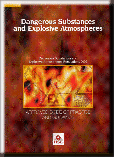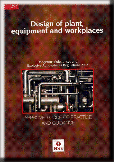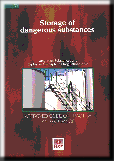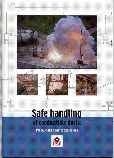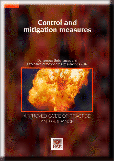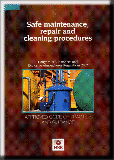DSEAR guidance documentation published by the UK's Health & Safety Executive
Dangerous Substances & Explosive Atmospheres.
General requirements and guidance
Design of Plant and Equipment
Ever wondered how to design products, processes and systems for use in hazardous areas, then here is where to start
Storage of Dangerous Substances
Guidance on the quantities of dangerous substances and how to store them safely.
Safe Handling of Combustible Dusts
Guidance on the precautions required against explosions from combustible dust and how best to deal with them
Control and Mitigation measures
Guidance on identification of and control measures against potential sources of ignition
Product Standards ATEX
Essential health and safety requirements: equipment, protective systems and safety devices must satisfy the relevant essential health and safety requirements set out in Annex C
Safe Maintenance, Repair and Cleaning Procedures
Guidance on three crucial areas of DSEAR Compliance, namely Maintenance and Repair operations and procedures and essential requirements for cleaning practices
atex,dsear,ex,epd,hazop,en 1127,hazardous areas,atex certification,ce testing,dsear training,atex training,iecex,atex training,atex 137,hazardous area,atex 95,atex directive,dsear consultancy,dsear regulations,explosive atmospheres,explosion protection,flameproof,increased safety,intrinsic safety,area classification,dsear,atmosphere explosible,ex competence assessment,control of major accident hazards,dangerous substances and explosive atmospheres regulations,explosion protection document,ex health and safety audit,process hazard analysis,Dangerous Substances and Explosive Atmospheres Regulations,ATmosphere EXplosible, Hazard and Operability Study,Process Hazard Analysis,Safety Integrity Level,EX Safety,DSEAR,ATEX,HAZOP,PHA,HAZID,SIL,LOPA,PHSER,EPD,Control of Major Accident Hazards,COMAH,COMAH Compliance,COMAH Audit,Fire Risk Assessment,Fire Regulations,Emergency Response Plan



